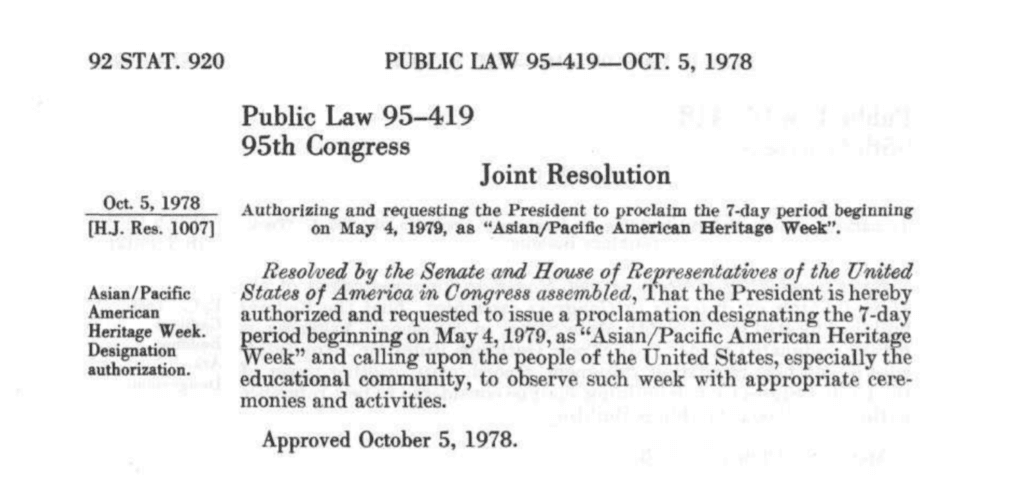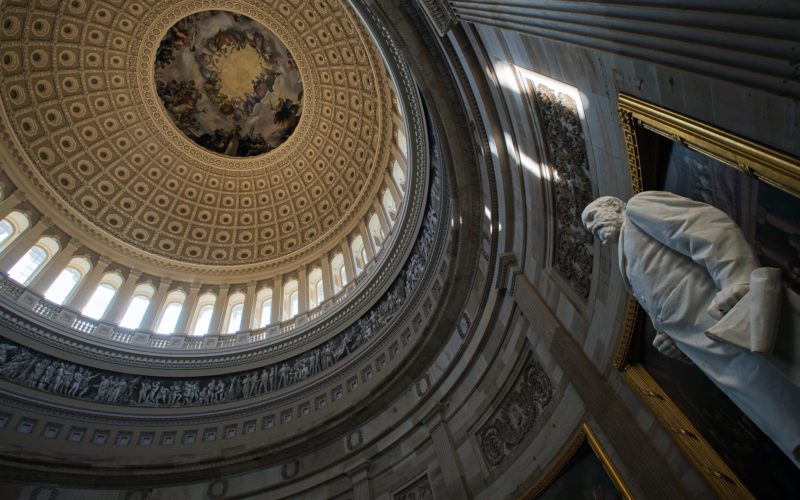In the late 1970s, two Asian women successfully convinced Congress to create "Asian Pacific American Heritage Week." Now, during the entire month of May, the U.S. celebrates AAPIs with community festivals, cultural events, educational activities, and more. Here's what you need to know…
How it started
Following the U.S.’s bicentennial celebration in 1976, former Capitol Hill staffer Jeanie Jew approached Rep. Frank Horton (R-New York) about dedicating a month to AAPI recognition.
- Jew, joined by Horton’s Chief of Staff Ruby Moy, recommended May since it included two important dates.
- May 7, 1843 marked the first Japanese immigrant’s arrival in the U.S.
- May 10, 1869 marked the completion of the Transcontinental Railroad, made possible through thousands of Chinese laborers’ blood, sweat, and tears—amid abusive and racist working conditions.
Congressional efforts
Because of Jew and Moy’s lobbying, Horton introduced 1 of 3 House resolutions in 1977-1978 that would designate the first 10 days of May Asian Pacific Heritage Week. The effort was backed by Rep. Norman Y. Mineta (D-California).
- Sen. Daniel Inouye (D-Hawaii) also introduced a similar bill cosponsored by Sen. Spark Matsunaga (D-Hawaii).
- None of the resolutions advanced. So Horton tried again in 1978 with an amended joint resolution (1007), asking the president to declare the 7-day period beginning on May 4, 1979 “Asian/Pacific American Heritage Week."


- After Joint Resolution 1007 easily passed the House and Senate, President Jimmy Carter signed it into law on Oct. 5, 1978.
- Carter and other presidents continued to sign annual proclamations for Asian/Pacific American Heritage Week for the next decade.
Expansion
“Asian/Pacific American Heritage Month” was formalized in President George H.W. Bush’s proclamation on May 7, 1990. Around the same time, Congress also moved to expand the observance to the full month of May.
- In 1992, Bush signed additional legislation making the month-long designation permanent.
- The name was changed to “Asian American and Pacific Islander Heritage Month” under President Barack Obama.
- President Joe Biden signed a proclamation on April 30, 2021 including Native Hawaiians and the acronym “AANHPI.”









